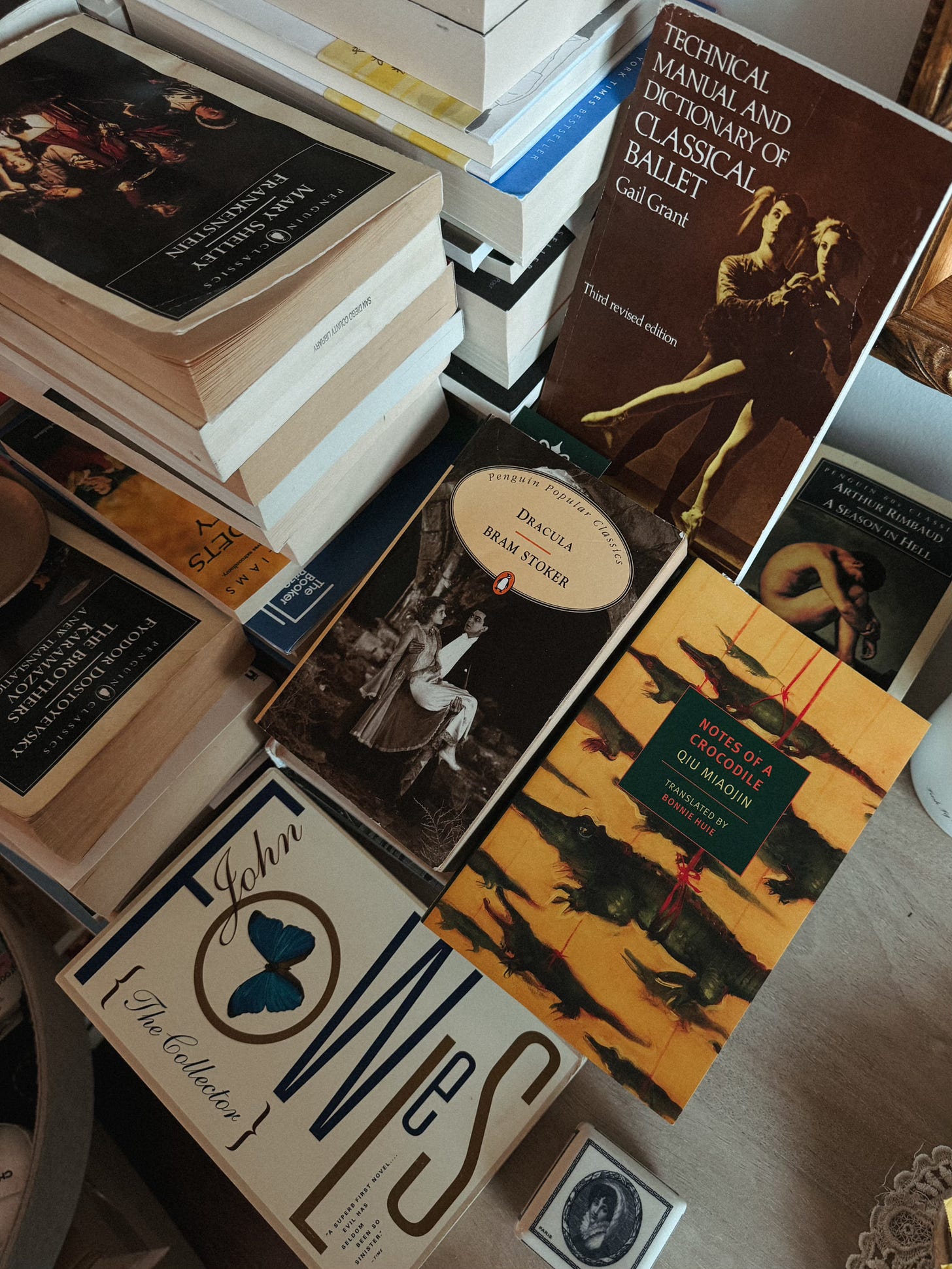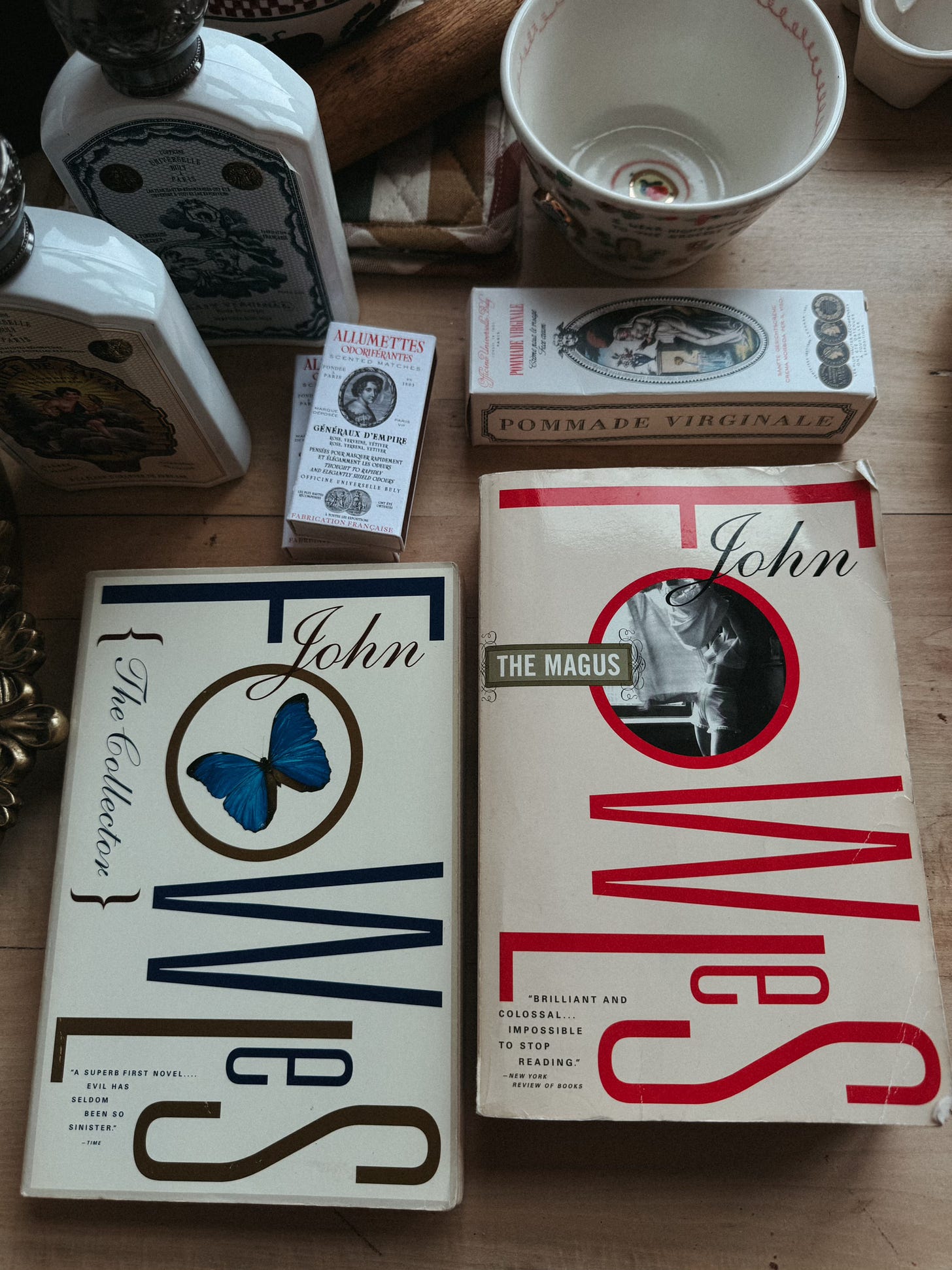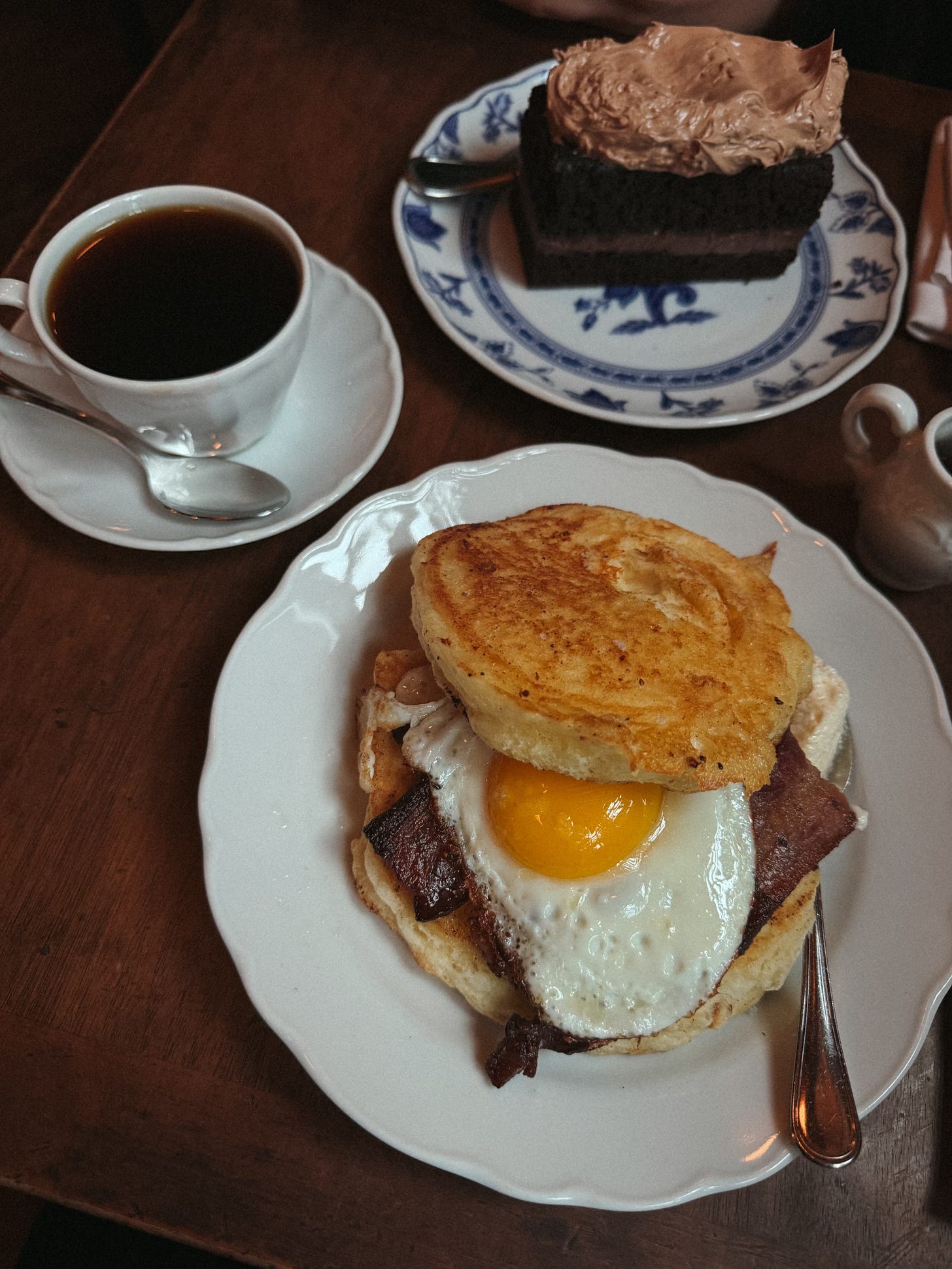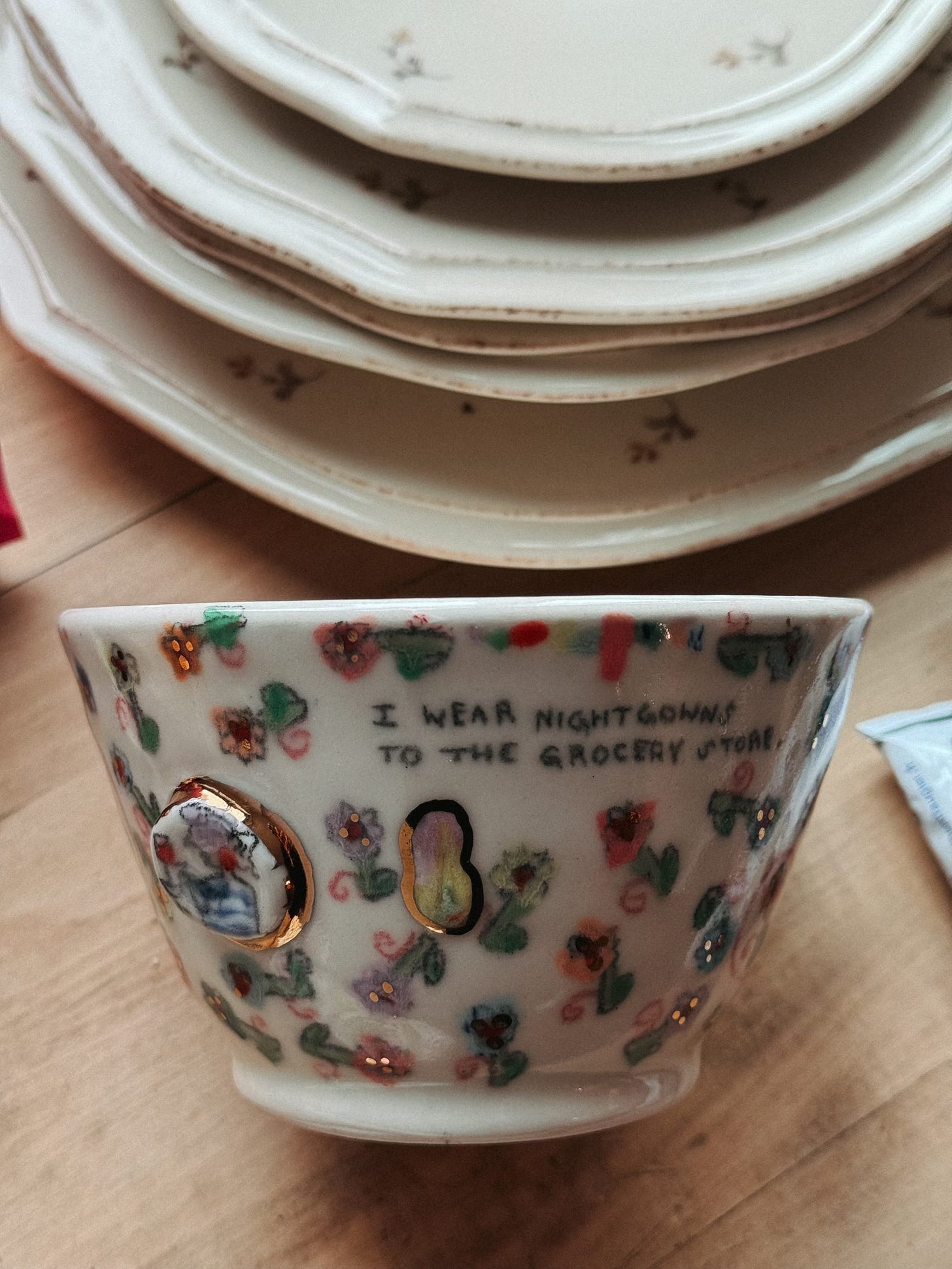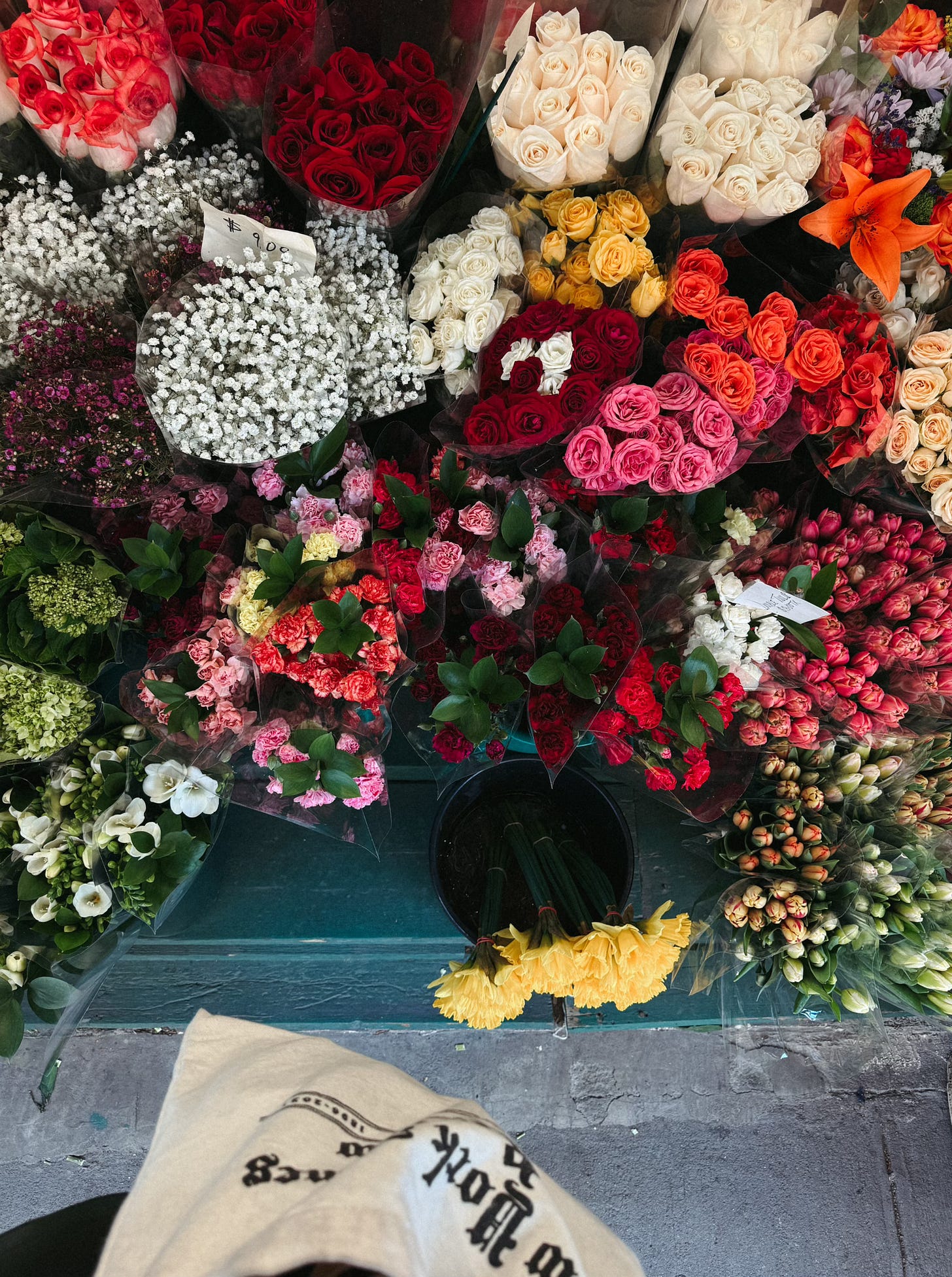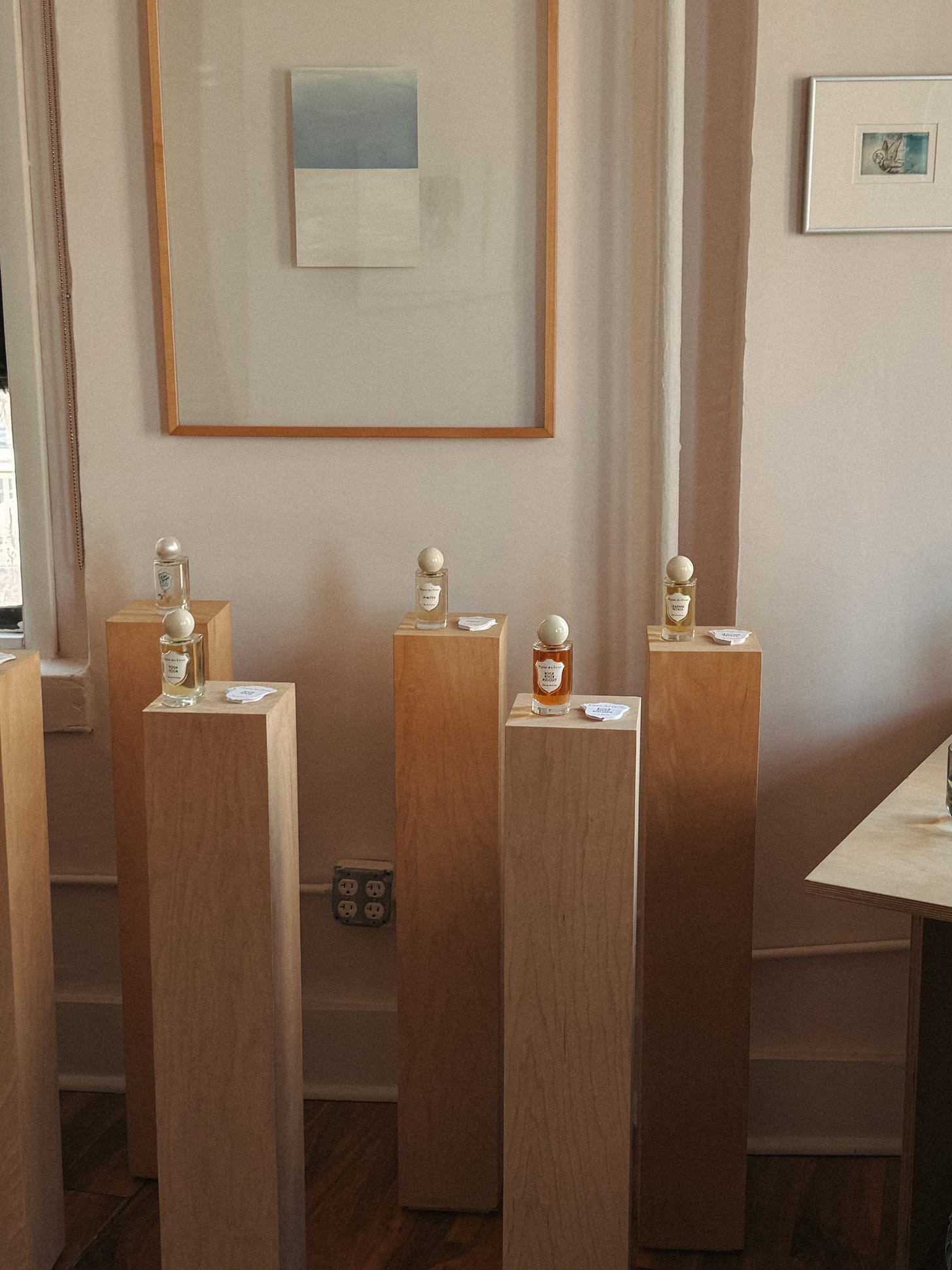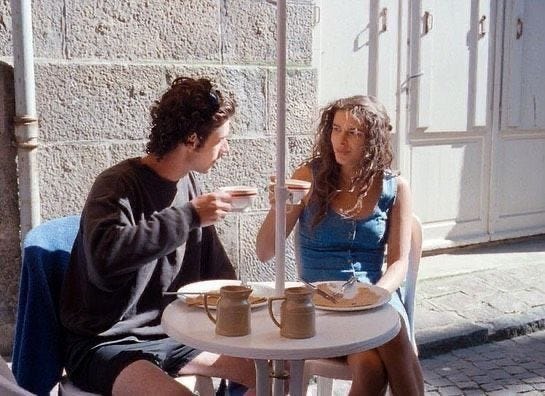weekly report, brandy hellville, rotting away in bed, and how to be enough
Hello.
I’m sharing a little weekly report, then we’ll get into today’s reading.
At the end of today’s letter, I’m sharing more recommendations for youtube and podcast episodes I’ve been loving.
Weekly R.E.P.O.R.T.
Reading:
Eating: hearty breakfasts
Playing:
Obsessing: my new cereal bowl
Recommending: activities off-screen
Treating: new fragrance from regime des fleurs
Read with me:
Banning TikTok Would Be Both Ineffective And Harmful
Proposing a TikTok ban as a silver bullet to the complex web of social media concerns reflects a fundamental misunderstanding of the digital ecosystem. TikTok's potential ban underscores a reactive rather than strategic approach to digital governance, ignoring the nuanced reality that platforms like TikTok offer both significant opportunities for creative expression and community building, and challenges related to misinformation and data privacy. A more thoughtful and comprehensive strategy is needed, one that addresses the systemic issues across all social media platforms, rather than singling out TikTok as a scapegoat for broader digital dilemmas.
Vox
In a world fixated on self-improvement, the constant drive to better ourselves often leaves us feeling inadequate and unfulfilled. From societal pressures to individual desires, the pursuit of perfection can lead to overconsumption and perpetual dissatisfaction. But by shifting our mindset away from comparison and material accumulation, and instead focusing on gratitude and meaningful growth, we can find contentment in simply being "good enough."
Vox
Is ‘Bed Rotting’ Good Or Bad For Your Sleep?
"Bed rotting" may offer temporary relief, but prolonged periods of inactivity in bed can disrupt sleep patterns and lead to increased stress and fatigue. Understanding the underlying reasons for this behavior and incorporating healthy habits can help improve sleep quality and overall well-being.
Scientific American
Have The Liberal Arts Gone Conservative?
The article explores the growing appeal of the classical-education movement, emphasizing its return to traditional learning methods and Western canon, amidst a political landscape where it’s both celebrated for academic rigor and critiqued for perceived exclusivity and ideological leanings. It's a fascinating dive into how education can mirror societal divisions, yet in places like Brilla Schools, attempts to bridge that gap with a more inclusive approach.
The New Yorker
The article tracks the evolution of Soho House from an exclusive, arts-centric members' club into a sprawling global empire, grappling with accusations of brand dilution and financial instability reminiscent of WeWork's downfall. It's a cautionary tale of balancing growth and exclusivity, where expansion efforts have attracted financial scrutiny and challenged the club's foundational allure.
The Hollywood Reporter
‘Brandy Hellville’ Reveals Cult-Fave Brand’s ‘Pedo Energy’ and Creepy CEO
"Brandy Hellville" at SXSW 2024 exposes the dark underbelly of Brandy Melville, from its discriminatory practices and design theft to its unsettling focus on young, slender women, revealing the challenges of holding powerful, obscure figures accountable in the fast fashion industry. Despite past revelations, the brand's resilience to controversy poses questions about consumer responsibility and the lasting impact of exposés in a cycle of 'all press is good press.'
The Daily Beast
M.C. Mah's piece critically dissects the paradox of Peak TV, where an abundance of content led to both an unprecedented era of television and its eventual critique for overwhelming viewers and diluting quality. By contrasting the fervor for creating an ever-expanding catalogue of shows with the audience's struggle to navigate this glut, Mah suggests that the pursuit of prestige in television has led us away from its essence, prompting a reevaluation of what makes TV truly valuable.
Lit Hub
How A Second Language Can Boost The Brain
Learning a second language is not just a linguistic challenge but a significant cognitive workout that benefits the brain across various stages of life, from enhancing executive functions in children to potentially delaying neurodegenerative diseases like Alzheimer's in adults. This cognitive exercise strengthens both gray and white matter, leading to a more resilient and efficient brain network, capable of compensating for age-related declines. For those contemplating bilingual upbringing or seeking to learn a new language later in life, the journey promises not just linguistic proficiency but a profound, lasting impact on brain health.
Big Think
Why Does Romance Now Feel Like Work?
The books "The End of Love" delve into the complexities of modern romance, suggesting societal shifts and a focus on care over conventional coupledom could enrich our understanding and experience of love. By challenging traditional narratives and highlighting the impact of social dynamics, they offer a hopeful vision for more meaningful connections.
The Atlantic
The Terrible Costs Of A Phone-Based Childhood
The sudden rise in adolescent mental health issues in the early 2010s correlates with the shift from flip phones to smartphones, deeply altering youths' daily experiences and developmental paths. Addressing this crisis necessitates a cultural shift towards more real-world interactions and less smartphone dependency, emphasizing the importance of physical, social, and emotional development over digital engagement.
The Atlantic
Care for more recommendations?
Watching:
The Art Of Boredom by the beautiful Dakota Warren
Booktok And The Hotgirlification Of Reading by the lovely Mina Le
Living Alone Diaries by the beautiful and lovely Lauren Louise aka Big Book Lady
Listening:
Fat Mascara podcast: this episode with
This podcast episode with Aimee France aka yungkombucha420
Why society crumbles when we obsess over identity episode from This Jungian Life podcast
That’s all for today.
I love you.
See you tomorrow.
Bye <3




